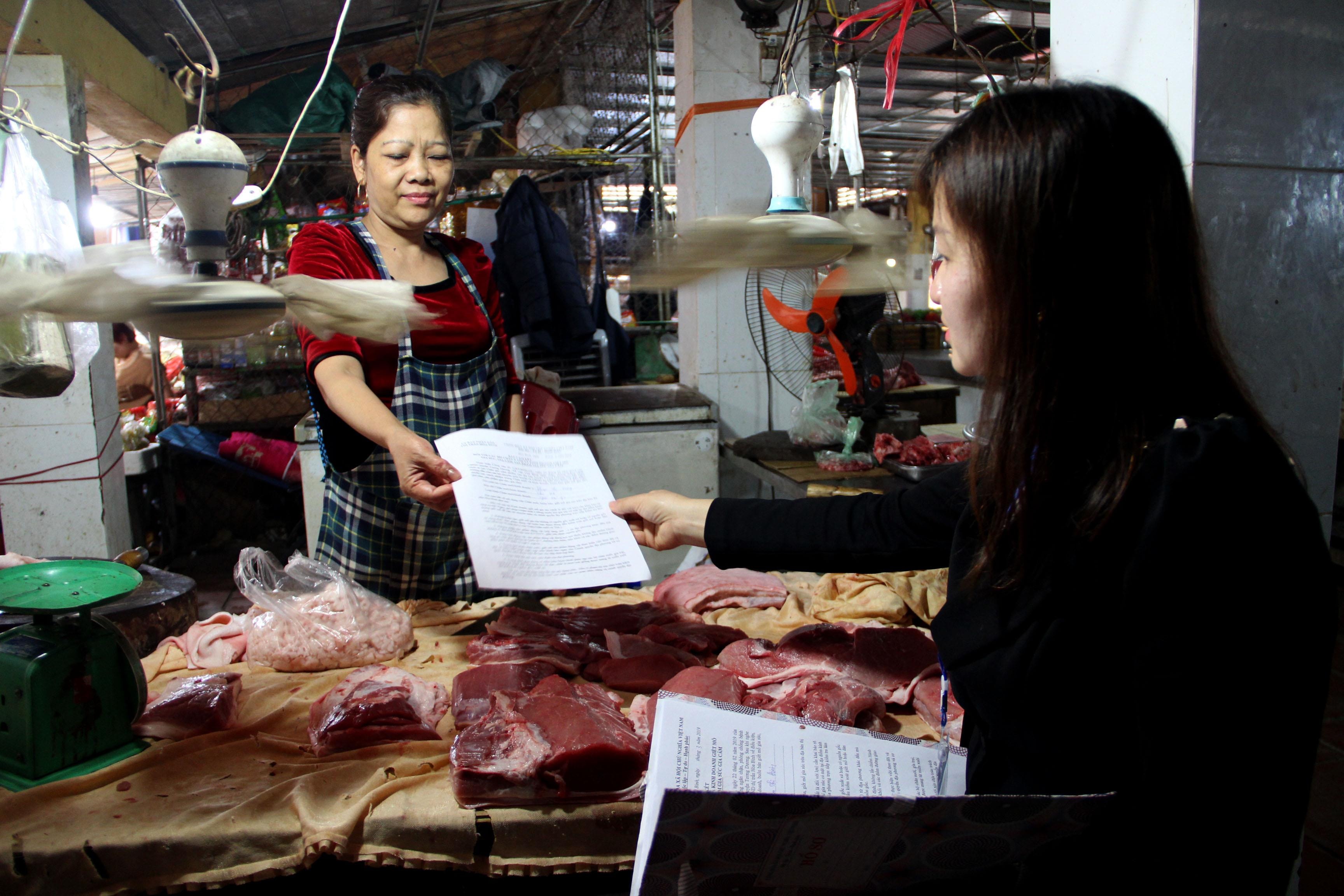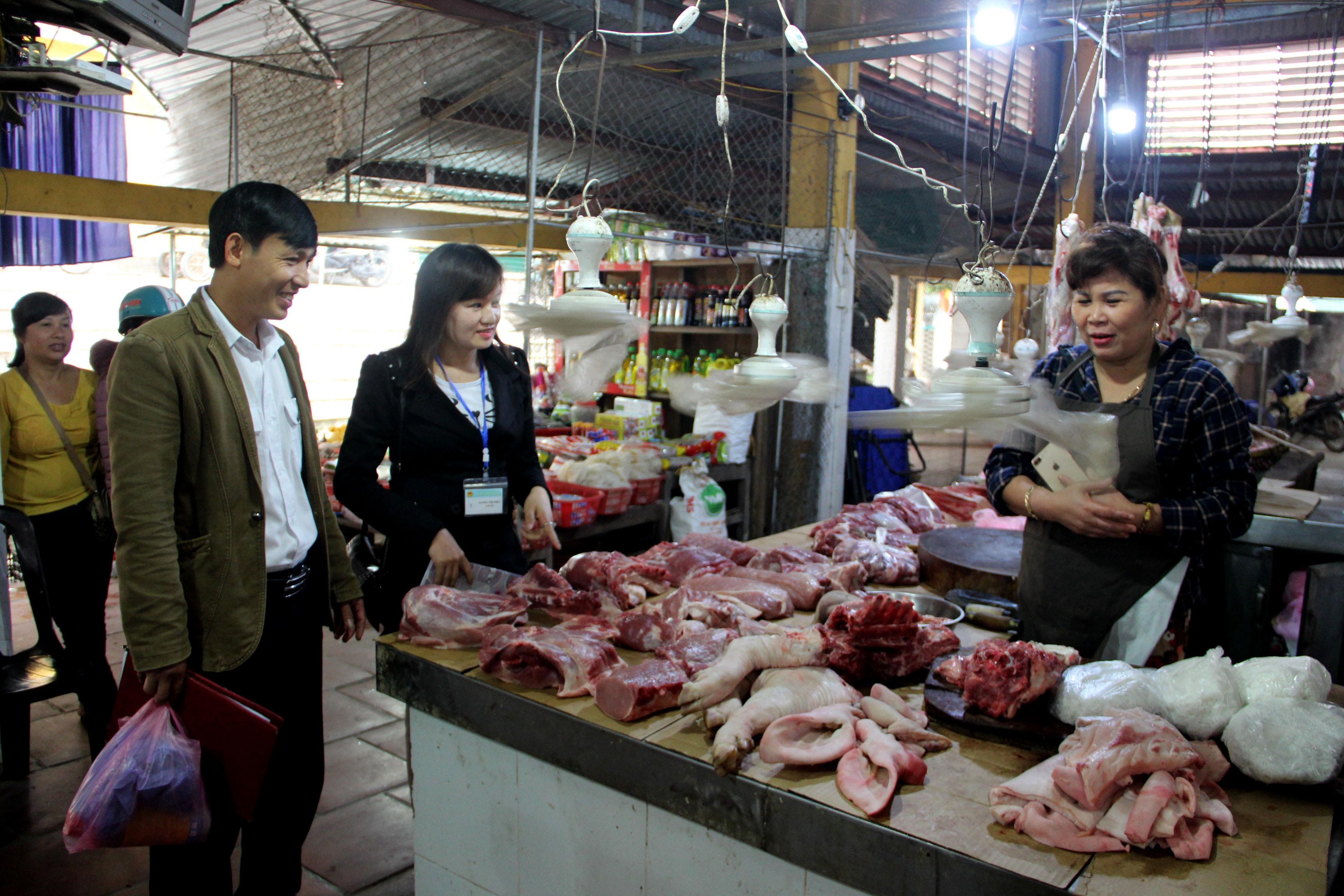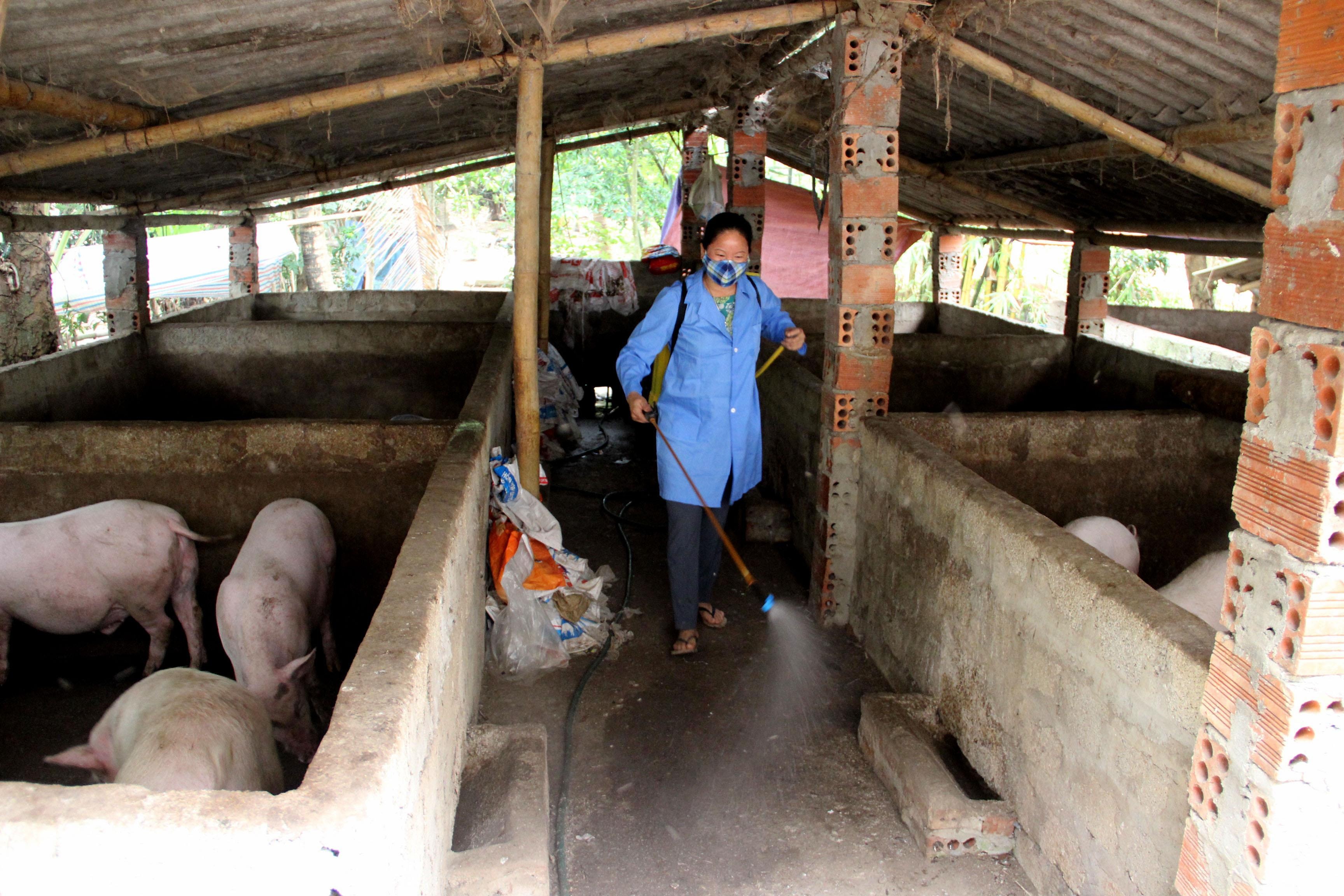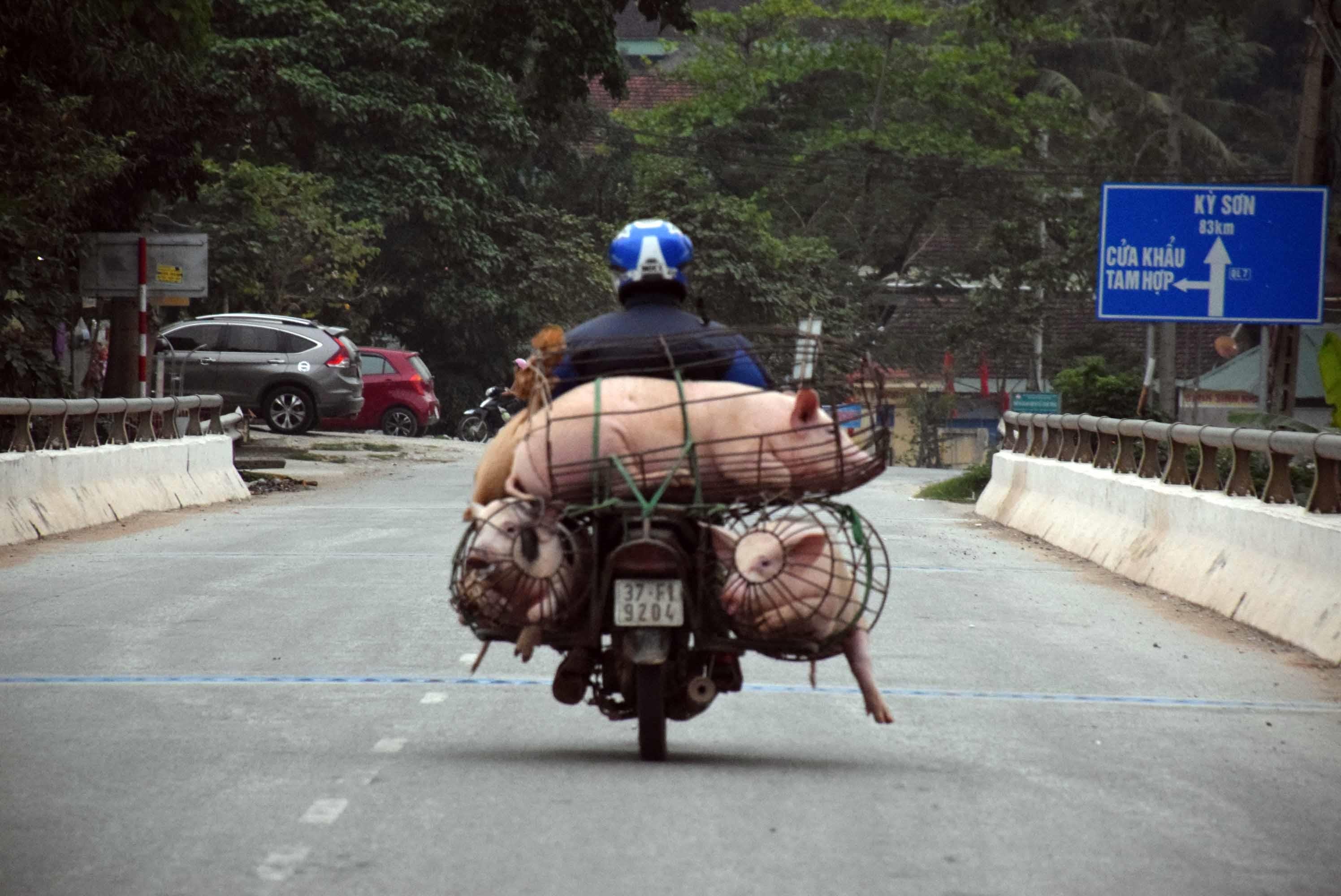Nghe An mountainous districts proactively respond to African swine fever
(Baonghean.vn) - With the characteristic of 50% of pork imported from the lowlands, immediately after the African swine fever outbreak in Quynh Luu district, the localities of Tuong Duong and Ky Son strengthened epidemic prevention solutions.
 |
| Meat traders at Hoa Binh market, Tuong Duong district pledge not to sell pork of unknown origin. Photo: Quang An |
Mr. Vo Trong Dong's family has been slaughtering pigs in Hoa Dong block, Hoa Binh town, Tuong Duong for many years. In the face of the African swine fever epidemic spreading to Nghe An, Mr. Dong said: From March 14, the family will no longer take pigs from the lowlands, but will catch pigs from the village to slaughter for peace of mind. Since hearing about the swine fever epidemic, people here have been picky about buying pork to eat. Therefore, we have to catch pigs from the village to slaughter them in order to sell them.
Following the instructions of the town's veterinary officer, every day after slaughtering pigs, he sprays chemicals in the entire barn area and slaughterhouse.
 |
| Veterinary staff of Tuong Duong district check pork sold at Hoa Binh market. Photo: Quang An |
Mrs. Mai Thi Thanh's family in Can village, Tam Thai commune is the largest pig farmer in the commune. When asked about the work of preventing African swine fever, Mrs. Mai said: 2 days ago, she bought a new sprayer to replace the old one to spray disinfectants every day more conveniently. Before Tet, her family sold 30 pigs for meat, and has 20 pigs left to raise until now. If there was no African swine fever, she would have added more pigs right after that, but because the African swine fever epidemic is complicated, she has not added more pigs.
"Breeding pigs are imported from traders from the lowlands, so the risk of disease transmission is high. Therefore, not importing pigs while African swine fever is spreading complicatedly is to protect the family and society," said Ms. Thanh.
 |
| Ms. Mai Thi Thanh in Can village, Tam Thai commune (Tuong Duong) sprays disinfectant chemicals in the barn area. Photo: Xuan Hoang |
According to Ms. Lo Thi Kim - veterinary officer of Tam Thai commune, there are currently about 60% of households raising pigs in the commune, of which 20 households raise 10 pigs or more. To prevent African swine fever, the commune's loudspeakers regularly inform people about the dangers of this disease every day; and at the same time, instruct people on how to prevent the disease. In particular, starting from March 14, right after the African swine fever outbreak in Quynh Luu district, the commune has informed people to absolutely not re-herd or import pigs from the lowlands for slaughter. If a pig is found to have died from the disease, it must be reported to the veterinarian for immediate treatment.
Mr. Mai Van Hoang - Head of the Veterinary Station of Tuong Duong district said: According to the statistics, the whole district currently has 23,747 pigs, with 4 small pig slaughter points in Hoa Binh town and each commune has 1-2 home slaughter points. The characteristic of Tuong Duong is that up to 50% of pork is imported from the lowlands for daily slaughter and breeding pigs are also mainly imported from the lowlands (mainly Yen Thanh, Do Luong), so the risk of African swine fever infection is high. Therefore, it is necessary to do a good job of controlling the transportation of pigs into the area.
First of all, the Veterinary Station coordinated with local authorities to sign a commitment with pig slaughterhouses and pig farmers not to buy pigs of unknown origin. Veterinary staff at the grassroots level checked the origin of pigs at slaughterhouses every day; organized spraying of disinfectant chemicals after each market session.
 |
| Pigs are transported by traders to the mountainous districts of Tuong Duong and Ky Son on National Highway 7. Photo: Xuan Hoang |
As for Ky Son district, there are more than 200 km of border, including Nam Can International Border Gate and 2 openings with Laos in Nam Can and Na Ngoi communes, in addition to 2 waterway routes from Laos. Therefore, the work of preventing African swine fever is somewhat more difficult and complicated.
Mr. Nguyen Xuan Truong - Head of the District's Department of Agriculture and Rural Development said: Regarding the control of pig transportation into the area, the district coordinates with functional agencies, especially the border guards, to control pigs through the border gate.
Regarding pig slaughter, to facilitate disease control, the district focuses on mobilizing households in neighboring communes to bring pigs to slaughterhouses in town.
Faced with the African swine fever outbreak in Nghe An, the district's Department of Agriculture and Rural Development has consulted with the district People's Committee to set up a quarantine checkpoint on National Highway 7 in Chieu Luu commune when necessary, and at the same time requested the district to support funding to buy disinfectant chemicals to prevent the epidemic.

.jpg)
.jpg)



.jpg)
